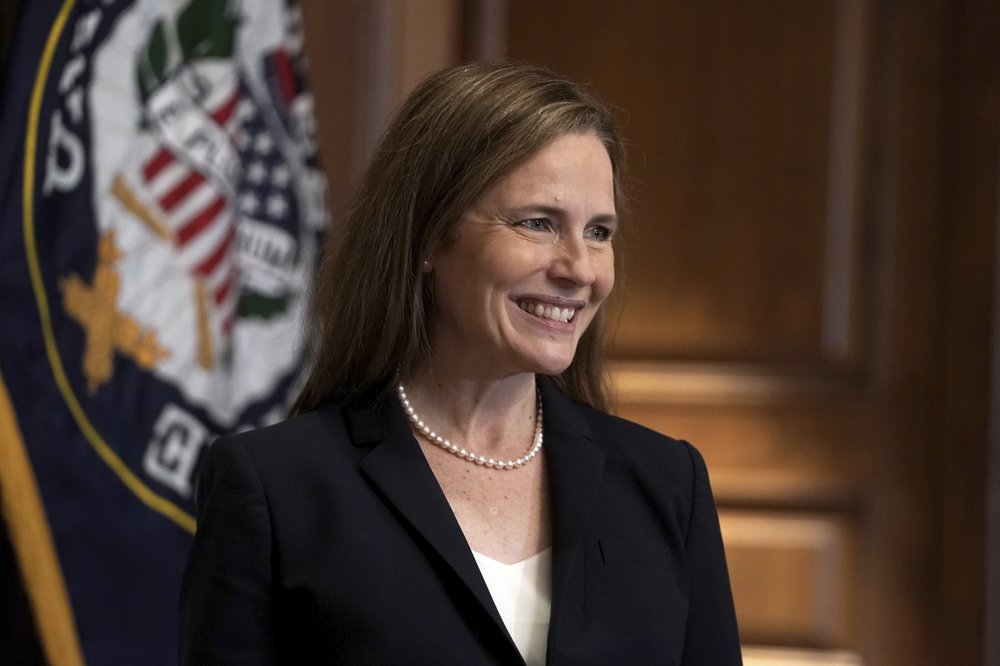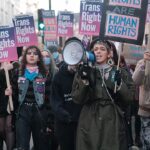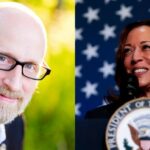Blog Post
Religious liberty in the docket again at the Supreme Court
Back in 2016, I reviewed Mary Eberstadt’s brilliant book It’s Dangerous to Believe: Religious Freedom and Its Enemies. In one of the most compelling chapters, she explains that progressives, fundamentally, do not care who they hurt in their attempts to purge society of those who disagree with them. She cited several examples of LGBT activists aggressively targeting adoption agencies and foster care agencies run by Christian churches. These activists, she noted, would rather see these agencies shut down than adhere to Christian ethics. The children that would be hurt by this were of no consequence. Nice adoption agency you have there—it’d be a pity if something happened to it.
A recent case at the Supreme Court perfectly encapsulates this war between LGBT activists and Christians seek to do what Christians have always done—care for children. From the Washington Examiner:
The case, Fulton v. City of Philadelphia, concerned a dispute between Catholic Social Services and Philadelphia laws requiring foster care providers to match children with people regardless of their sexual orientation. The city in 2018 broke off relations with CSS, which is run by the Catholic Church, after learning that it would not serve gay or transgender couples. CSS, in turn, sued Philadelphia, claiming the requirements violated the First Amendment and Pennsylvania’s Religious Freedom Restoration Act.
In the arguments Wednesday, Lori Windham, an attorney at the Becket Fund for Religious Liberty representing CSS, stressed that the adoption and foster care agency never was approached by gay or transgender couples before the city broke off relations. Several justices, including Brett Kavanaugh and Samuel Alito, in their questions said that the fact that the case arose over an instance of discrimination that never occurred was concerning. Justice Stephen Breyer added that it “bothered” him.
Hashim Mooppan, the counselor to the solicitor general, also argued on behalf of CSS and said that the regulations are being used in a way that specifically targets groups that don’t believe in gay marriage.
“What Philadelphia is doing here doesn’t even help gay couples, and instead, it’s harming the very children it’s trying to serve,” he said, pointing to Windham’s point that no gay or transgender couple had ever attempted to work with CSS.
Kavanaugh in his questions said that, given the facts of the case, the court faces a tough decision on how to balance its judgments in a way that will be fair to both religious liberty interests and the precedent laid down in the landmark Obergefell v. Hodges gay marriage case. Calling the line between the two “sensitive and controversial,” Kavanaugh said that the court should always be looking for a middle way.
“It seems like we should be looking, where possible, for win-win answers,” he said. “And it seems like neither side is going to win entirely, given the First Amendment on the one hand and given Obergefell on the other.”
Kavanaugh added, however, that in this case, it seems like Philadelphia was “looking for a fight” because there was never a complaint brought by a gay or transgender couple.
The case more broadly brought a challenge against the landmark 1990 Supreme Court decision Employment Division v. Smith, in which the court found that if a law is neutral and generally applicable, it does not violate someone’s religious beliefs. The decision has long been decried by social conservatives, and in 1993, Congress passed the Religious Freedom Restoration Act to combat it.
On Wednesday, newly minted Justice Amy Coney Barrett led the questioning on Smith, whose majority opinion was written by her mentor, the late Justice Antonin Scalia, showing what appeared to be skepticism on why the court should overturn the decision.
“Why should we even entertain the question of overruling Smith?” Barrett asked Windham, before asking a series of other questions about how Smith would be replaced.
Barrett also suggested that it was possible to resolve the dispute without throwing out Smith.
Breyer, too, said that Smith, while imperfect, attempted to answer a question that did not seem to have a good answer.
“I’ve always, always thought that Smith is a solution to a problem that nobody could figure out how to answer,” he said, saying that overturning it would lead to a series of possibly discriminatory religious exceptions to laws.
The court is expected to deliver a decision next summer.
There are a few things to highlight here. First, this is an example of the LGBT witch-hunt that one prominent activist promised after Obergefell—when asked what the next plan was, the response was: “Punish the wicked.” As was pointed out during the proceedings, this was a hunt for targets rather than a response to a complaint. It is also important to point out (once again) that as Kavanaugh noted, Obergefell did not simply allow same-sex couples the right to marry. It changed everything, just as social conservatives had long predicted. LGBT activists are pushing for an entire social realignment, not access to a single institution. We’ll see if the Anthony Kennedy Compromise approach (he authored both Obergefell and Masterpiece Cakeshop) holds in this case, as well.
Finally, this case is a reminder of why the Supreme Court is, unfortunately, so important. Thus far, the Supreme Court has been a firewall protecting religious liberty, and as progressive forces regain political power, this firewall will be even more needed. Trump’s legacy—which I suspect will be fought over in conservative circles for at least a generation—may be solid when it comes to his judicial picks (which, it must be noted, he didn’t pick—which is one of the reasons he got the endorsements of so many leading groups back in 2016. He outsourced the shortlists.) If the GOP holds the Senate after the Georgia runoff races in January, court-packing is dead for good—and then Supreme Court is likely to rule in favor of religious liberty for a long time to come.








